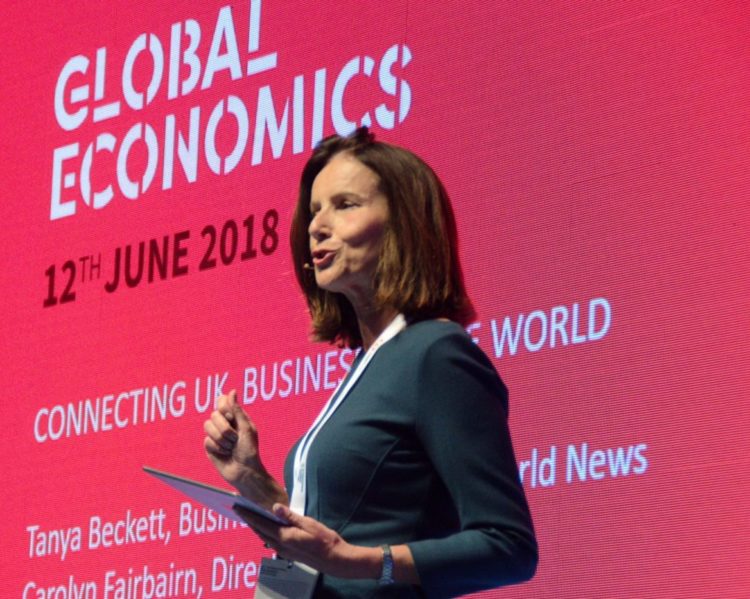Liverpool city region professionals say there are a number of positives in Philip Hammond’s Budget including a renewed commitment to the Northern Powerhouse. Tony McDonough of Liverpool Business News reports

Business leaders, both in the Liverpool city region and across the UK have offered a cautious welcome to Philip Hammond’s Budget – the last one before Brexit.
Peter Taaffe, managing partner of Liverpool accountancy firm, BWM, said it was a “complex Budget” that will be more carefully analysed in the coming days, and added: “There is something for everyone unless you drink wine or smoke.”
Mr Taaffe acknowledged there were signs Mr Hammond was looking to back up the claim that austerity was coming to and end with the £1bn over five years to help those moving to Universal Credit and an extra £1.7bn to reverse planned cuts to it.
He added: “There was additional help for working people and those with disabilities starts to address the obvious injustices of Universal Credit – but whether he has done enough remains to be seen.
“Income tax changes should save £130 a year. There’s help for business, too, with a marked increase in the tax deduction for eligible capital expenditure from £200,000 per year back up to £1m for two years.
“Some business rates reliefs as anticipated with help for the high street. The entrepreneur now needs to wait two years rather than one to qualify for the favourable capital gains tax treatment and big digital services companies are indeed to be taxed on their UK revenues – which will be very welcome to most.
“Some odder items so for instance public toilets are to receive mandatory business rates relief – presumably in response to the dwindling number of public lavatories making relief of a different kind more challenging.”
Bob Ward, North West senior partner for accountancy firm EY, said that although there was only one mention of the Northern Powerhouse there was signs of a commitment to the North in the finer detail.
“Looking into the detail of the Budget itself, commitment to the Northern Powerhouse and crucially, to the delivery of Northern Power Rail was most certainly reinforced,” he added.
“I’m heartened by several of the announcements, firstly that the Government plans to publish what it calls a ‘refreshed’ Northern Powerhouse Strategy next year – that demonstrates renewed commitment to the importance of improving productivity across the region.
“Crucially, Northern Powerhouse Rail gets a special mention with direct recognition of how it will transform the economic geography of the North and a pledge of a further £37m on top of previous commitments to support its development.
“The extension of the Transforming Cities Fund by a year will see Greater Manchester benefit to the tune of £69.5m, while Liverpool City Region will get an extra £38.5m. They are just two of just six cities to get this bonus as a result of having devolution and metro mayors in place.
“This fund continues to give metro mayors power and means to do their jobs and support their mission.”

Paul Scully, North West head of tax at business advisors Grant Thornton, which has offices in Liverpool and Manchester, said the Budget had contained some “eye-catching measure”.
He explained: “The new UK Digital Services Tax is a robust and possibly courageous response to concerns that global tech giants are not shouldering enough of the tax burden and the Chancellor wants to equalise some of the competitive advantage online businesses have over the high street.
“It will only impact tech giants – taxed at 2% on revenue from UK end users. It remains to be seen whether the US tech giants will withdraw signalled investment here in response to the Chancellor’s unilateral action.
“But, given how important the digital economy is the North West, with businesses such as Boohoo, AO.com and The Hut Group driving growth, there will be a sense of relief in some quarters that the changes are targeted at large overseas companies.
“From an employers’ point of view, the increase in the minimal wage is probably more than was envisaged and won’t make life any easier.”
Frank McKenna, chief executive of Liverpool membership and lobbying organisation Downtown in Business, said the changes to the Apprenticeship Levy and to NI contributions were positive. He added: “The reduction in business rates announced is also welcome news, particularly for the retail sector. The extension on Entrepreneurs tax relief, and the expected freeze on fuel duty are also pluses.
“We can take some cheer from the increased infrastructure spend announced for Northwest transport projects, but I’d say we need more if the Northern Powerhouse is to recover its credibility as an economic project rather than a marketing tag.
“Overall, I’d give the chancellor six out of ten, maybe a seven given that he has, through no fault of his own, got one eye on what could be a very costly Brexit.”
Carolyn Fairbairn, CBI director-general, described the Chancellor’s statement as a “rock-solid Budget” that brought “more treats than tricks for business”.
She said: “It recognises the enormous contribution enterprise has made to balancing the UK’s books through jobs, pay and tax and responds to many of the recommendations that firms have made. But while the Chancellor has reduced some of biggest barriers to growth, he has missed some opportunities.
“That said, the new investment in broadband, research, housing and infrastructure will help tackle the UK’s glaring regional equalities head on.”

Roland Hutchins, corporate partner at firm Weightmans in Liverpool, said the shifting of responsibility to assess the worker status of ‘self-employed’ contractors to businesses represented a “significant compliance challenge”, especially for firms that use agencies, or other intermediary organisations, to access labour.
He added: “The online Check Employment Status for Tax (CEST) tool HMRC has rolled out for use by public sector bodies to establish the status of their contractors will need to be substantially modified and refined if it’s going to be suitable for the more nuanced employment models used by the private sector.
“The lack of a statutory definition of ‘employment’ makes determining the tax status of contractors especially challenging. Unlike in the public sector, businesses are far more likely to depart from the online CEST tool and use their own bespoke testing procedures.”
Stephen Phipson, Chief Executive of EEF, the manufacturers’ organisation, said the Budget was “a practical, realistic statement from a Chancellor who is wise to keep firepower in reserve”.
He also said: “Alongside this, however, manufacturers will be boosted that the Chancellor has kept his eye on the ball of tackling the UK’s longstanding productivity problem which remains a bar to raising living standards and improving our long term economic performance.
“Almost one year on from its inception the further boost to the industrial strategy will signal to companies that the Government is serious about backing it with funding in key areas for the long term.”
If you would like to discuss the budget implication for you or to request a copy of our detailed budget report please contact VIcki Harper




